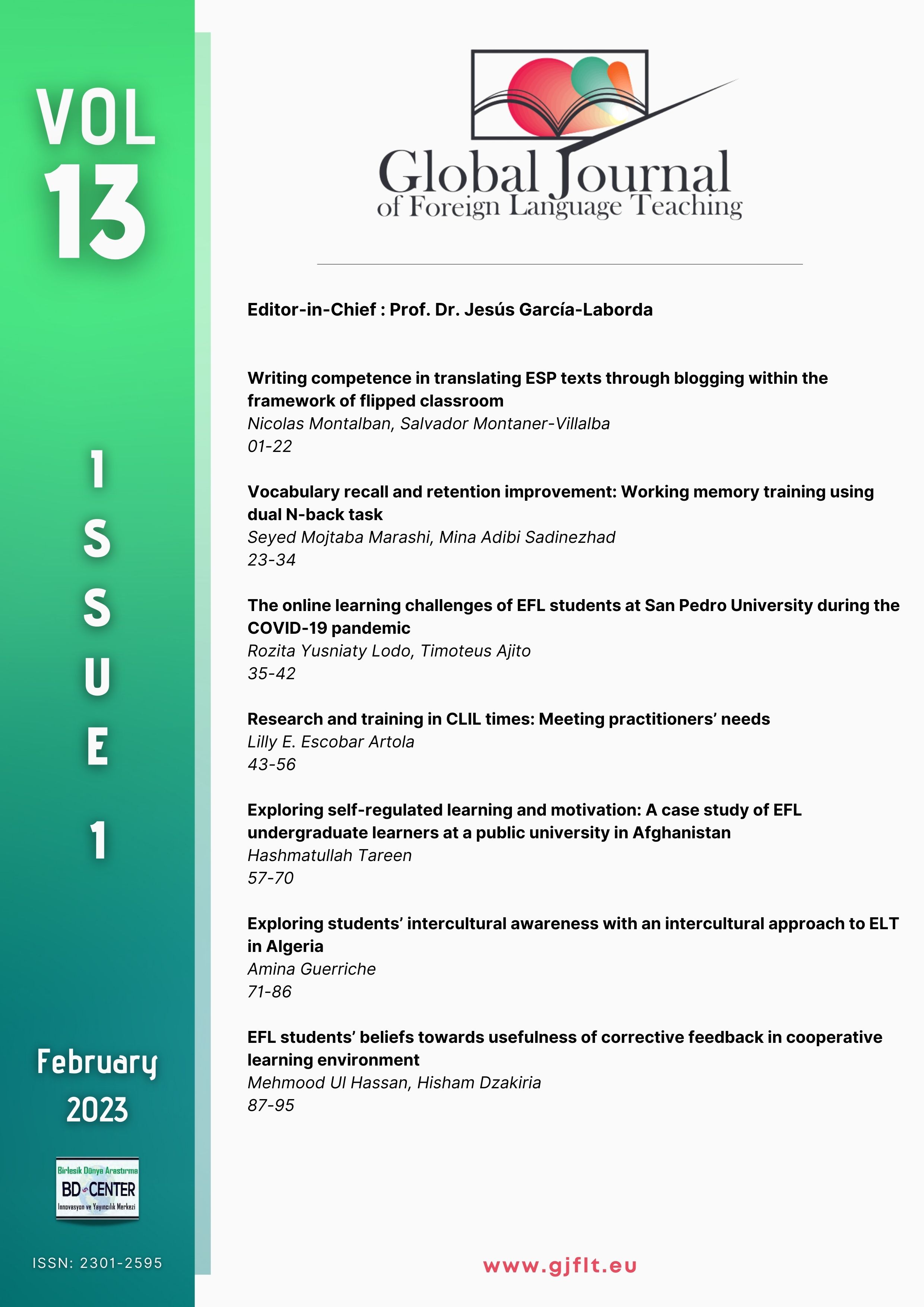Vocabulary recall and retention improvement: Working memory training using dual N-back task
Main Article Content
Abstract
Working memory (WM) plays an important role in learning since it serves as the buffer between past sensations and future behaviour, making it essential to understand not only how we encode and recall sensory information in memory but also how we plan for its upcoming use. This study examined the effect of WM training on vocabulary recall and retention of Iranian EFL learners using the dual n-back task technique. N-back requires the individual to remember an item that was presented a certain number of items previously. To this end, 50 EFL learners were randomly assigned to the experimental (n = 25) and control (n = 25) groups. The participants were taught 100 English words in 20 sessions. In each session, the experimental group also received a dual n-back task. The obtained data were analysed through two-way repeated measures analysis of variance and independent samples t-tests. The results showed that the experimental group outperformed the control group in target words’ recall and retention.
Keywords: Dual n-back task, EFL learners, working memory training, vocabulary recall, vocabulary retention
Downloads
Article Details

This work is licensed under a Creative Commons Attribution-NonCommercial-NoDerivatives 4.0 International License.
Authors who publish with this journal agree to the following terms:- Authors retain copyright and grant the journal right of first publication with the work simultaneously licensed under a Creative Commons Attribution License that allows others to share the work with an acknowledgement of the work's authorship and initial publication in this journal.
- Authors are able to enter into separate, additional contractual arrangements for the non-exclusive distribution of the journal's published version of the work (e.g., post it to an institutional repository or publish it in a book), with an acknowledgement of its initial publication in this journal.
- Authors are permitted and encouraged to post their work online (e.g., in institutional repositories or on their website) prior to and during the submission process, as it can lead to productive exchanges, as well as earlier and greater citation of published work (SeeThe Effect of Open Access).
